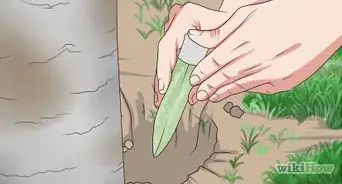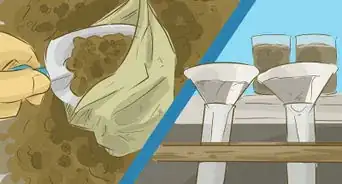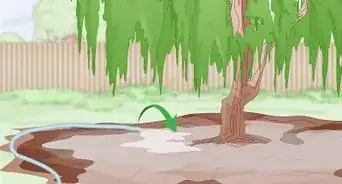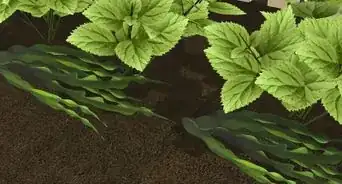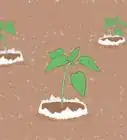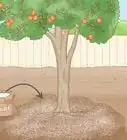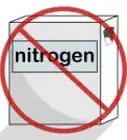This article was co-authored by Matt Bowman and by wikiHow staff writer, Janice Tieperman. Matt Bowman is a Gardener, Landscaper, the Owner of Georgia Farm to Table, and the Owner of Tradition Property Services in Atlanta, Georgia. With over 20 years experience, he specializes in organic gardening, landscape maintenance, handyman services, homecare services, and supplying Christmas trees. Matt earned a BA in Journalism from the University of Georgia.
There are 10 references cited in this article, which can be found at the bottom of the page.
This article has been viewed 25,180 times.
Do you want to grow apples at home? Harvesting your very own apple crop is a rewarding, delicious way to get the most out of your yard. If you aren’t totally sure how to start fertilizing your tree, we’ve got you covered. Keep reading to get all the answers to your frequently-asked questions. You’re one step closer to tasty, hand-picked apples!
Steps
When should I fertilize my apple tree?
-
1Nourish 1-to-2-year old trees twice a year—in the spring and summer. Experts recommend fertilizing your apple tree right after you plant it, and then a second time in early summer. During the second year, experts suggest fertilizing once in early spring, and a second time in early summer.[2]
-
2Fertilize mature apple trees once a year during the spring. Unlike other fruits, apple trees don’t need to be fertilized multiple times each year. If your tree is more than 2 years old, you only need to apply fertilizer once in the springtime to kickstart growth.[3]
What fertilizer should I use?
-
1Do a soil test to see what your soil’s needs are. Unfortunately, there isn’t a one-size-fits-all fertilizer for apple trees. Instead, it really depends on where you live and the current soil conditions. A soil test will help you pinpoint which nutrients your soil needs so you can choose the right fertilizer.[4] [5]
- Buy soil test kits online or at your local home improvement store.
-
2Pick a fertilizer based on your soil test results. Your test results will list a recommended NPK ratio—this is the percentage of nitrogen, phosphate, and potash that your soil needs. Write down this specific ratio, and head to a garden supply store. Then, buy a fertilizer with the same NPK ratio as your test results.[6]
How much fertilizer do I need for each application?
-
1Apply 1⁄2 lb (0.23 kg) of fertilizer for newly planted trees. After you first plant your apple tree, wait 3 weeks for the soil to settle. Then, spread 1⁄2 lb (0.23 kg) of fertilizer around the tree to kickstart growth.
-
2Use 1 lb (0.45 kg) of fertilizer for every 1 in (2.5 cm) of trunk width after that. In the following years, apply an extra 1 lb (0.45 kg) of fertilizer for every 1 in (2.5 cm) of tree trunk. Cap off the fertilizer once you’re using 2 1⁄2 lb (1.1 kg) every year.[10]
- Some experts suggest adding an extra 1⁄2 lb (0.23 kg) of fertilizer for each year of life. For instance, a newly planted tree gets a 1⁄2 lb (0.23 kg) of fertilizer, a 2-year old tree gets 1 lb (0.45 kg), a 3-year old tree gets 1 1⁄2 lb (0.68 kg), and so on.[11] Pay attention to your tree's growth and adjust, as needed.
Why is my apple tree not fruiting?
-
1You pruned or fertilized your tree too much. When you over-fertilize and over-prune, your apple tree spends more time growing its wood, and the tree doesn’t yield any flowers or fruit. This can happen when you fertilize the grass near your apple tree, and your tree ends up absorbing some of the extra nitrogen.[13]
-
2Frost might be the culprit if you live in a cold area. If temperatures drop below 29 °F (−2 °C) while the tree is flowering, your apple tree might not produce fruit. To prevent this, plant your apple tree pretty close to your home, or on a more elevated section of land in your yard.[14]
-
3Pollen might be a factor. If your apple tree isn’t pollinated very well, it might not produce any fruit. Experts recommend cross-pollinating apples and pears together. You could also plant crabapples and ornamental Bradford pears near your apples, as well.[15]
Expert Q&A
-
QuestionWhat is the best fertilizer for soil?
 Matt BowmanMatt Bowman is a Gardener, Landscaper, the Owner of Georgia Farm to Table, and the Owner of Tradition Property Services in Atlanta, Georgia. With over 20 years experience, he specializes in organic gardening, landscape maintenance, handyman services, homecare services, and supplying Christmas trees. Matt earned a BA in Journalism from the University of Georgia.
Matt BowmanMatt Bowman is a Gardener, Landscaper, the Owner of Georgia Farm to Table, and the Owner of Tradition Property Services in Atlanta, Georgia. With over 20 years experience, he specializes in organic gardening, landscape maintenance, handyman services, homecare services, and supplying Christmas trees. Matt earned a BA in Journalism from the University of Georgia.
Gardener & Owner, Tradition Market & Garden The best fertilizer depends on your local environment and the nutrients present in your soil. A soil test will help you figure out the best fertilizer for your soil.
The best fertilizer depends on your local environment and the nutrients present in your soil. A soil test will help you figure out the best fertilizer for your soil.
References
- ↑ https://hortnews.extension.iastate.edu/2010/3-31/fertilizer.html
- ↑ https://hgic.clemson.edu/factsheet/apple/
- ↑ https://ohioline.osu.edu/factsheet/hyg-1401
- ↑ Cory Schifter. Jeweler & Certified Jewelry Appraiser. Expert Interview. 21 April 2020.
- ↑ https://ohioline.osu.edu/factsheet/hyg-1401
- ↑ https://extension.umaine.edu/gardening/manual/selecting-fertilizers-based-soil-test-results/
- ↑ Cory Schifter. Jeweler & Certified Jewelry Appraiser. Expert Interview. 21 April 2020.
- ↑ https://hgic.clemson.edu/factsheet/apple/
- ↑ https://extension.oregonstate.edu/gardening/techniques/fertilizing-fruit-trees
- ↑ https://extension.unh.edu/resource/fertilizing-fruit-trees
- ↑ https://ohioline.osu.edu/factsheet/hyg-1401
- ↑ https://extension.colostate.edu/docs/pubs/garden/07612.pdf
- ↑ https://extension.psu.edu/home-orchards-why-is-there-no-fruit-on-my-tree
- ↑ https://extension.psu.edu/home-orchards-why-is-there-no-fruit-on-my-tree
- ↑ https://extension.psu.edu/home-orchards-why-is-there-no-fruit-on-my-tree
- ↑ https://extension.umaine.edu/fruit/growing-fruit-trees-in-maine/fertilization/
- ↑ https://extension.colostate.edu/docs/pubs/garden/07612.pdf
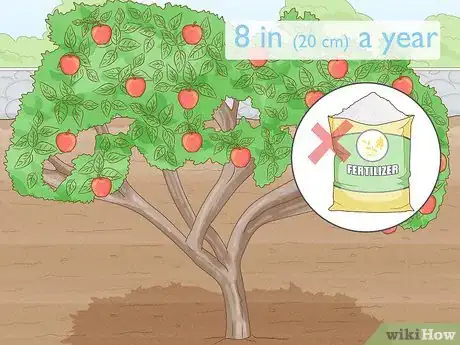
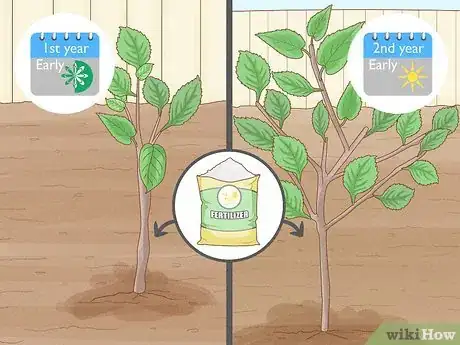
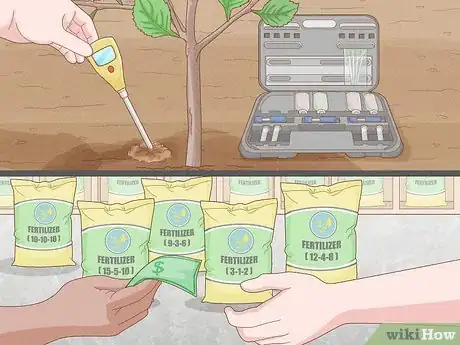

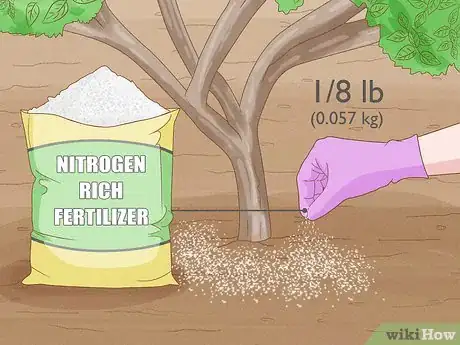
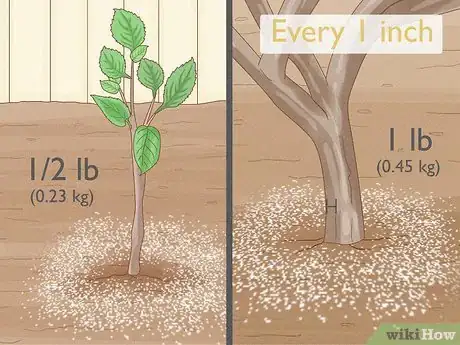
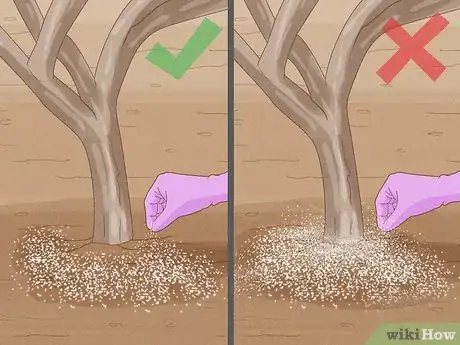
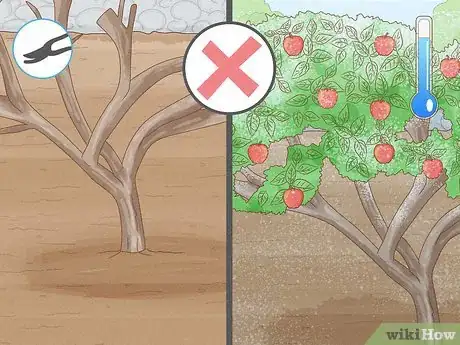
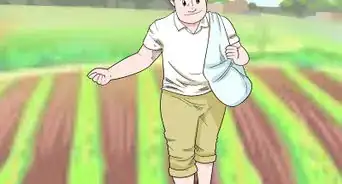
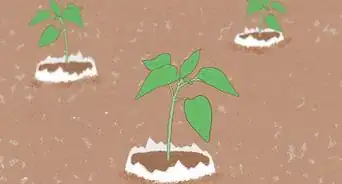
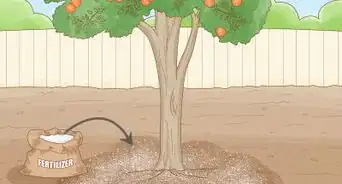
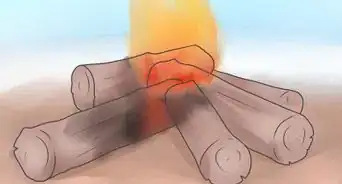
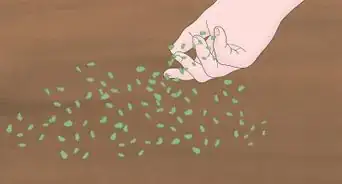
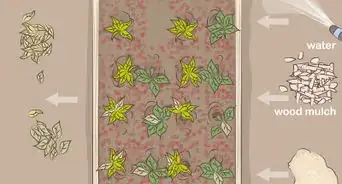
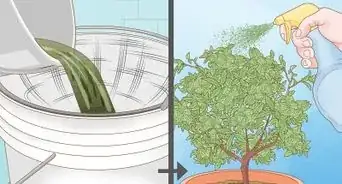
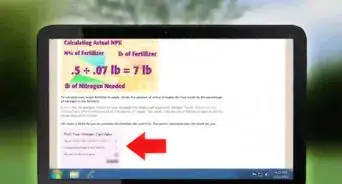
-Step-10-Version-3.webp)
